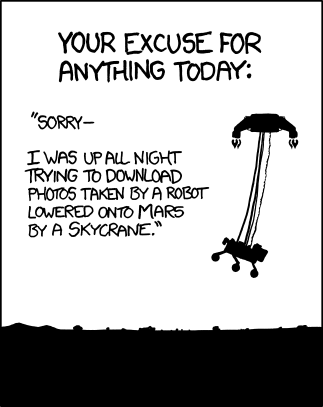Soldato
- Joined
- 21 Mar 2003
- Posts
- 4,652
- Location
- Nottingham
You can barely say that Concorde was a plane of the 60s though, it wasn't introduced until 1969, and didn't enter passenger service until 1976.
Also as already mentioned in this thread, I'd rather spend 6.5 hours in a Dreamliner than 5 in a VC10.
Other than driving massive advances in the use of composite materials I guess.
Are we all just making stuff up to post now?
Can you say this was not impressive?
But we seem to be in a era of refining existing technology. Such as the vertical rocket landing that SpaceX is doing.

 )
)



or Futurama Tube Transport System?
I'm not questioning what is considered an advance and what isn't?
I'm saying some advances are more obvious than others. "This plane flies faster than a bullet" is a very obvious advance, "this plane uses less fuel" is much less obvious.
Technology is moving forward at an ever more rapid pace, but its doing it in less and less obvious ways and with much less spectacle. This hinders its ability to work as an inspirational tool.
[TW]Fox;29147526 said:In the 1960's the vast majority of us could never fly the Atlantic in any sort of time. Even those who could visit say Spain were in the privileged few. The rest of us were limited to British seaside towns.
Right, sorry. I see what you mean now. But I'm not sure how helpful it is.
If your aim is to increase the number of primary school children writing "aeronautical engineer" down when asked what they want to be when they grow up and then decide that this means people are being inspired then I guess expensive vanity projects are the way forward. I think future breakthroughs are going to come from people who are inquisitive by default and would have got there regardless of whether the field was making huge and obvious leaps.
Look at the Raspberry Pi - it does nothing that computers haven't been doing for a long time. It's cheap and it has easy to use IO options, but these aren't huge leaps forward. It's doing a really good job of getting kids interesting in programming.
 .
.I may be being unfair, but I am concerned that Engineers of that calibre, daring and imagination simply do not exist any more (or are simply no longer allowed to exist!)
I may be suffering from "Old Man Nostalgia" but, for me, the 60's were full of "Wonders" (As in, "Wonders of the World") Hardly a year went by without something really new and dramatic. Telstar (I remember that, and I must only have been two. The first live transatlantic TV transmission). The Nuclear Age, Concord, Landing a Man on the Moon. Colour TV,
Nothing seemed impossible.
Although the advance of technology over the last 20/30 years has been technically impressive. Somehow, however, I cannot really think of anything as dramatic and awe inspiring as the sort of things that were achieved in the 60's almost as a matter of routine.

Can you say this was not impressive?
But we seem to be in a era of refining existing technology. Such as the vertical rocket landing that SpaceX is doing.


Where's my Tomorrow Peoples Belt that's what I want to know ?


Where's my Tomorrow Peoples Belt that's what I want to know ?
Look at the Raspberry Pi - it does nothing that computers haven't been doing for a long time. It's cheap and it has easy to use IO options, but these aren't huge leaps forward. It's doing a really good job of getting kids interesting in programming.

